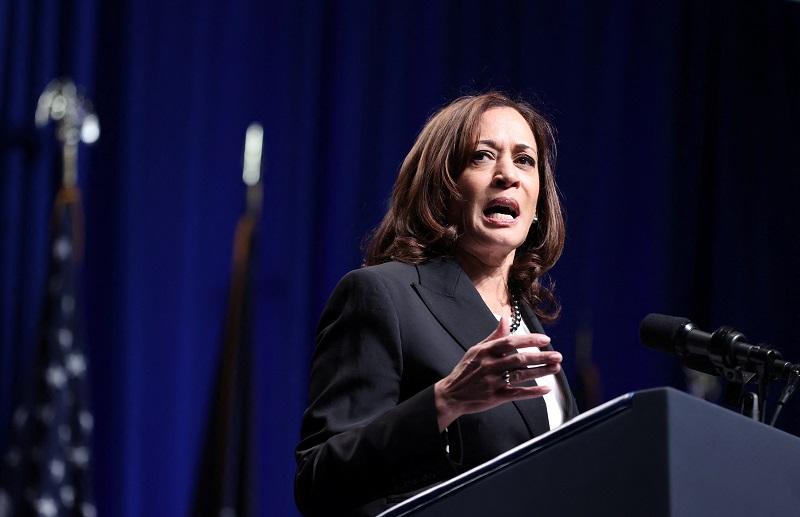Philippines, US to discuss EDCA, human rights during Harris' visit

The Philippines and the United States will discuss the 2014 Enhanced Defense Cooperation Agreement (EDCA) and the UN Joint Programme for Human Rights (UNJP) during Vice President Kamala Harris' visit, the US Embassy said.
According to the US Embassy, the US government has allocated over $82 million towards EDCA implementation at all five existing locations.
“This investment, and forthcoming additional allotment, will complete 21 projects, enabling the United States and the Philippines to build lasting security infrastructure to promote long-term modernization, build a credible mutual defense posture, maintain humanitarian assistance and disaster relief capabilities, and enhance the strength of the alliance,” it said.
Harris, who arrived in Manila on Sunday night after attending the Asia-Pacific Economic Cooperation economic leaders meeting in Bangkok, Thailand, is scheduled to meet President Ferdinand "Bongbong" Marcos Jr. and Vice President Sara Duterte on Monday.
She will also travel to Palawan, one of the areas in the country closest to the West Philippine Sea.
“New EDCA locations have also been identified to enable the United States and the Philippines to continue to work together towards achieving the agreed objectives under EDCA,” the US Embassy added.
Earlier, a senior US defense official said that the countries are exploring the possibility of adding five more joint-use military facilities in the country under a key defense pact that allows enlarged rotational presence of US forces and for America to preposition equipment and other military assets.
The initial five predetermined sites are located in Antonio Bautista Air Base in Palawan near the disputed South China Sea, Basa Air Base in Pampanga, Fort Magsaysay in Nueva Ecija, Mactan-Benito Ebuen Air Base in Cebu and Lumbia Air Base in Cagayan de Oro City.
Signed in 2014, EDCA grants US troops access to designated Philippine military facilities, the right to construct facilities, and preposition equipment, aircraft and vessels, but rules out permanent basing. The Philippine Constitution outlaws foreign military bases in the country unless covered by a treaty.
“The United States has awarded the vast majority of contracts supporting these projects to Philippine companies, generating economic growth in local Philippine communities and building lasting friendships between the United States and Philippines,” the embassy said.
Human rights
Harris will also discuss the US' plans for the three-year UN Joint Programme for Human Rights (UNJP), according to the US Embassy.
The UNJP seeks to support the Philippine government in strengthening its accountability mechanisms, the administration of justice, as well as investigations and data collection on allegations of human rights violations.
The three-year program also aims to better promote a human rights-based approach to curbing the drug menace.
Under the program, the UN will support evidence-based treatment and care services for people who use drugs.
It will capacitate national and local authorities, as well as teachers, guidance counselors, families, and communities in crafting and carrying out appropriate interventions to address the needs of these people in their recovery and reintegration to society.
Capacity-building activities aimed at alleviating prison overcrowding by strengthening criminal justice responses for drug-related crimes will also be undertaken.
“The United States financial contribution to the UNJP underscores our commitment to support the protection of human rights in the Philippines and enhancing the ability of the Philippines to fulfill its international human rights obligations and commitments,” the Embassy said.
Among the initiatives Harris will launch during her visit are those concerning civil nuclear cooperation, food security and 5G technology, and health security, it added. —Mel Matthew Doctor/KG, GMA Integrated News




